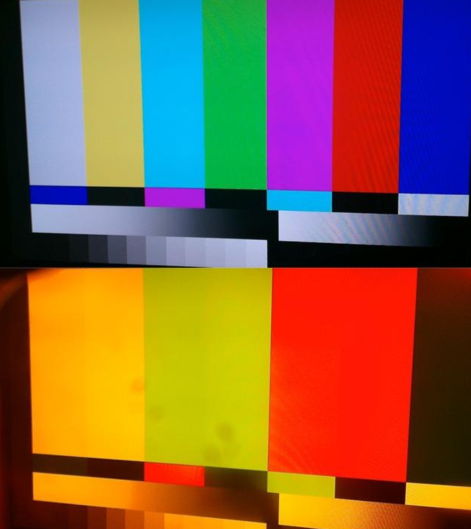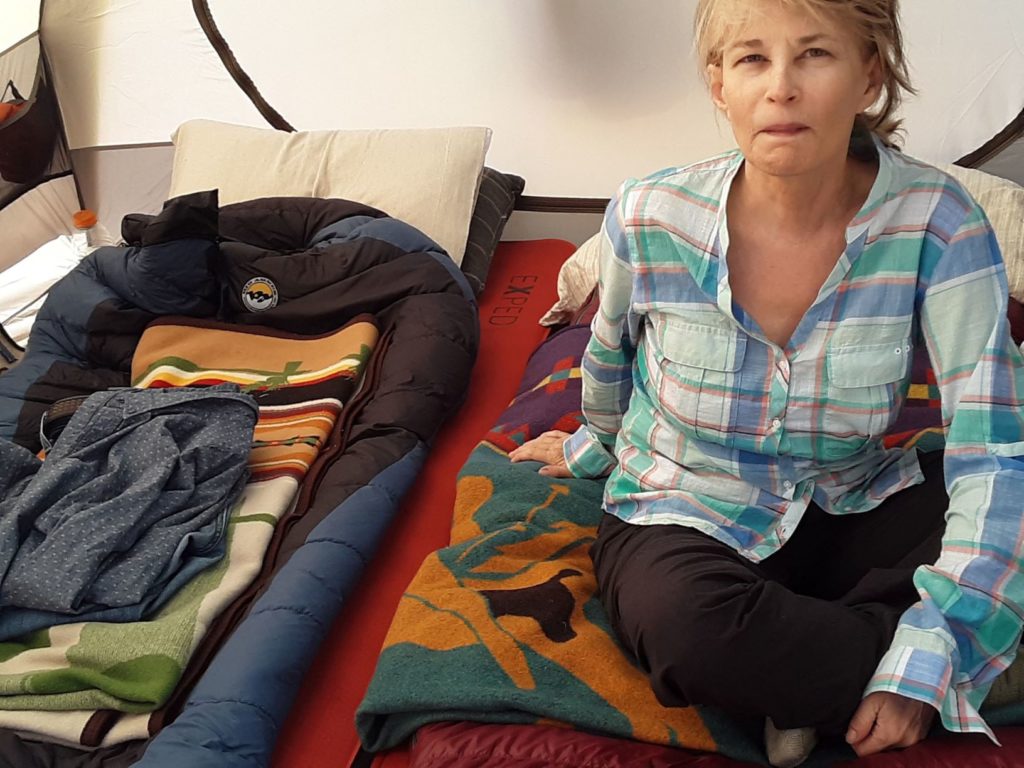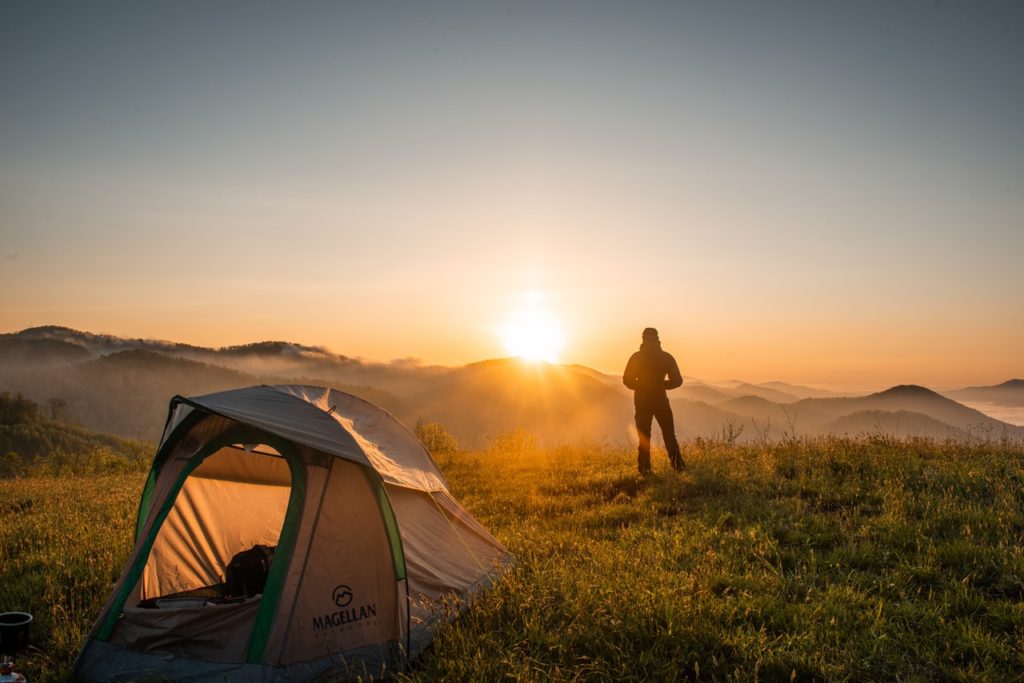Our Circadian Predicament
Align your Schedule to the Sun for Cellular Healing
I used to be a champion sleeper, but at age 55 chronic insomnia hit. My work stress was high, I was a cell phone addict and my diet wasn’t very good. During one miserable stretch, I was sleeping only two hours a night. It didn’t help that we’d moved into a brand new house, paint fumes still fresh with a security system actually installed in the bedroom and a green light emitting monitor directly over the bed. The only thing that helped was …. camping! Yes, camping outside in a tent. For five nights under a crisp starry sky in Utah, I slept like a teenager. It was a desperately needed reset, and it gave me hope that I could sleep like my old self again.
Since that trip, as I’ve progressed on my healing journey, the insomnia has slowly been easing. I’m going to share with you some insights and remedies, starting with an awareness of the Circadian Rhythm — the light and dark cycles by which all life on our planet is regulated.
Disconnected from Nature

The Circadian Rhythm is not just about sleep, although good sleep is often the ultimate goal. The overarching consideration is how your daily schedule reinforces your body’s natural rhythm, according to Dr. Suhas G. Kshirsagar, author of Change Your Schedule, Change Your Life: how to harness the power of clock genes to lose weight, optimize your workout, and finally get a good night’s sleep. Dr. Kshirsagar, an authority on the ancient Indian tradition of Ayurveda, contends that resetting your schedule is the most powerful health habit you can adopt.
“A growing body of science reveals how closely our bodies are linked to the circadian rhythm of light and darkness, right down to the cellular level. This research shows that when you eat is as important as what you eat, when you fall asleep is as important as how much sleep you get, and when you exercise is as important as how much exercise you get. Your daily schedule determines your weight, your stamina, your general health and your mood.”
Dr. Suhas G. Kshirsagar
To explain more fully, Earth’s living creatures experience a 24-hour body cycle, which is a process of continuous change at every hour, undergoing unique functions at different times and resetting itself every morning when you first experience daylight. Your body, and indeed every organism in nature, coordinates all of its systems on a central clock using sunlight. However, in the modern world, most of us live our lives indoors and think it’s perfectly normal. It’s not. The result is distorted cell behaviors resulting in digestion, hormonal, immune response and inflammation dysfunction, for starters.
The cells in your body are very sensitive to the behaviors of your daily schedule. If you have lackluster circadian habits, every other health habit, including a great anti-cancer diet, isn’t going to work as well. A properly functioning circadian cycle activates and empowers our glands, hormones, and neurotransmitters. Extremely important is that it encourages our bodies to eliminate and detoxify abnormal cells through the process of autophagy.
The answer to this dysfunction is to reconnect with nature. Many of us who are suffering from “Circadian Disruption,” are igmoring the fact that we are essentially diurnal- (daytime) functioning creatures who, by adopting modern technology, are attempting to alter our basic biology of being intimately tied to the sun. Science shows that humans require blue and green light during the day and, after sunset, darkness with red light, such as a fire or candle. This is when we’re designed to shut down and sleep. As you might guess, our modern schedules and technology shining 24-7 blue light into our faces and eyes profoundly disrupt this rhythm to the point where it’s a major health issue. You must address it in your healing plan.
Ask yourself: am I sleeping at least 7 hours of continuous sleep when it’s dark outside?
Circadian Disruption and Breast Cancer
Research specifically ties Circadian Rhythm dysfunction to Breast Cancer. A recent 2016 study entitled Circadian Clocks and Breast Cancer, concluded with several key findings of significant importance for healing breast cancer:
- The incidence of breast cancer is much higher in the developed world, with four times as many cases in Western Europe as in Middle Africa and Eastern Asia where nighttime blue light sources are minimal.
- Disruption of circadian rhythms are associated with abnormal cell divisions that occur in cancer. “There are links between altered circadian clocks and tumorigenesis in metastatic colorectal cancer, osteosarcoma, pancreatic adenocarcinoma and, most notably, breast cancer.”
- “The molecular clock is also crucial for regulating the survival of stem cells. Indeed the self-renewal capacity of mammary progenitor stem cells becomes compromised in mice that have a defective CLOCK/BMAL1 complex, revealing a circadian influence on breast function.”
Your Optimal Circadian Schedule: How to Reset your Body
According to Ari Whitten, author of The Energy Blueprint, we’re completely upside down, meaning that during the day we work inside away from sunlight, while at night we’re “outside” receiving artificial blue and green “sunlight” from cellphones, computers, TVs and LED lights. Your body, which always knows what time it really is, is desperately craving for your behavior come into sync. Here are four fundamentals to help you respect the body’s clock:
- Sunlight. Get sunlight every morning, ideally within 20 minutes of rising. Light hitting the retina in the morning is your signal that it’s daytime. We’re talking about the red light when the sun is low in the sky, not the bright yellow sun that’s hard to look at. This ancient ractice actually has a name: Sun Gazing. Tty to create a routine that forces you to go outside: water plants, work out, walk the dog or just sit outside for a few minutes. It’s a great time to meditate which is what I do. If you can’t get outside, try opening a window and look at the sun directly (not through the glass which blocks the red light that we want).
- Darkness. Embrace nighttime darkness. Stop using electronics, especially cellphones and computers, at sunset. Turn them off and don’t use between dusk and dawn. I know this is a really tough habit to break, especially if you’re used to working at night or if you have a cellphone addiction. If you can’t swing this, a compromise is to use an anti-blue light blocker (I use Twilight) and aim for shutting your blue light devices down two hours before bed. Absolutely no using electronics in bed!
- Asleep by 10:30. That means asleep, not getting into bed. You’ll probably need to change your bedtime schedule to optimize sleep. Most people’s ideal bedtime is one to 2.5 hours earlier than their current schedule. Asleep by 10:00 p.m. is the ideal; according to Dr. Kshirsagar, when you stay up past 10:30 you may find yourself wide awake because the hours between 10 p.m. and 2 a.m. have the quality of Pitta, the most energetic time of night, according to the ancient Indian health practice of Ayurveda. During the winter I’m in bed about 9:15, which means heading upstairs at 8:30.
- Strategic Eating. Only eat during daylight hours. Do not eat after the sun goes down because everything you eat after dark is a drain on your system when you want it primed for cellular cleaning and detoxification. Research confirms that fasting at night enhances autophagy — the process of cellular cleansing. That means eating much earlier in winter than summer.
Don’t alter your sleep patterns on weekends as this confuses the body and contributes to metabolic disorders and insomnia.
More Success Tips
Adopting the four fundamentals is simple, free and effective if you give your body time to settle in and enjoy the new routine. Additionally, there are several other practices that can enhance your sleep success:
- Rising. Be up at 6 am or close to it. It’s usually easier to get up before 6 than after 6. Additionally, it’s important to give your body plenty of signals it’s daytime which primes the body to receive and process energy. Besides getting out in the daylight for at least a few minutes, you want to exercise before noon which offers the most benefit to your metabolism – ideally before breakfast.
- Eating Patterns. It’s what you eat in first half of each day that fuels your body for tomorrow. Lunch is critical; eat at noon or close to it, and make it your largest meal. Don’t snack – energy spent constantly digesting is diverted from healing – and don’t eat after sunset. Also try restricting your eating times, also known as intermittent fasting. Kshirsagar recommends a maximum 10-11 hour daily eating window. Personally, I adopted a 6-hour eating window four days a week, in which I fast from 2 pm to 8am.
- Tighten up post-sunset “Light Hygiene.” Melatonin production begins around sunset, but it’s suppressed by light, especially the blue and green “daylight” as produced by computers, cellphones, florescent and LED bulbs and TV’s. Keep the lights low after sunset; use incandescent light bulbs. Some people swear by blue light blocking glasses which are worn after sunset. If you read in bed, as I do, either read a paper book or use a non-backlit e-reader. Use a red flashlight for reading and for trips to the bathroom. Don’t have anything plugged in your bedroom except lamps with incandescent bulbs. Obviously keep the bedroom as dark and quiet as possible. Use earplugs and eye shades. If you use an alarm to wake-up, try a completely silent battery operated one.
- Sleep Location. Try switching sleeping location to another room or ideally another level. If you sleep with a person or pet, try sleeping alone. If you enjoy camping, this is probably the best thing you can do to reset your rhythm!
- Manage Stress. Don’t work on the next day’s to-do list in the evening. Do keep a notepad and pen on your nightstand to write down anything that’s bothering you to be considered tomorrow. Try to accept and “forgive” the day before falling asleep.
- EMF Disturbances. This is a large and serious topic to be addressed in the future, but — at a minimum — you should turn off the WIFI each night. In some cases, it might be best to turn off the electricity to the level or room where you sleep.
- Address Parasites. This is another huge topic, but suffice to say they can definitely can affect sleep. Nearly everyone has parasites; they are impossible to avoid. The older you are, the higher your load, particularly if you haven’t taken steps to reduce your load or not had a high fever since childhood.

You might be able to protect precious melatonin with inexpensive blue blocking glasses. Left, the top row shows seven colors as seen in normal light; the bottom row shows what is seen when wearing the protective glasses.
What’s next?
I’ve learned that correcting chronic insomnia, like many natural protocols, takes a while. After following the four fundamentals over the past few weeks, good sleep is still hit or miss. I definitely need to tighten up the computer and cellphone exposure. After three blissful nights of 7+ hours of sleep, I cheated by working on my laptop an hour after sunset AND using my cellphone to stream a podcast at 9:30 pm, plus my husband slipped and was using his cellphone in bed next to me. The result was I tossed and turned until 1 am. I recommend viewing insomnia as a lifelong sleuthing project, adding and removing factors to discover how to get your seven hours. Meanwhile, I’m going camping next week — yay!

References
Suhas G. Kshirsagar with Michelle D. Seaton, Change Your Schedule, Change Your Life: how to harness the power of clock genes to lose weight, optimize your workout, and finally get a good night’s sleep. 2018.
Ari Whitten PHDC, NASM C.E.S., P.E.S. The Energy Blueprint
Circadian Clocks and Breast Cancer Contributors: Victoria Blakeman, Jack L. Williams, Qing-Jun Meng, Charles H. Streuli. Breast Cancer Research, 2 September 2016.


